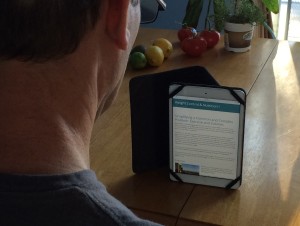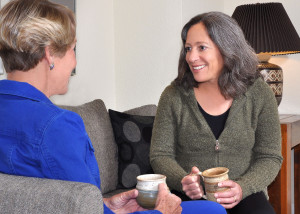Cancer research and public awareness campaigns have long been more focused on prevention, control, and eradication than on the needs of the patient after treatment. This has contributed to the assumption on the part of the patients’ support circle – including their family members, friends, employers, and even physicians – that once the cancer is gone and their hair grows back, the patient must be back to normal.
The Post-Treatment Experience
At the end of treatment, many patients are not told that they will not feel better for some time. They feel anxious and lost, not sure what might be a sign of recurrence. The lack of guidance in their transition from a cancer patient to a survivor can leave them feeling betrayed or even abandoned by their treatment team.
The public is not well informed about cancer treatment and its psychosocial consequences – which can be considerable even when the prognosis is favorable. This lack of awareness can contribute to the isolation and lack of confidence a survivor may experience.
Unfortunately, when survivorship is treated as if it were a diagnosis itself, survivors feel like the treatment never ends. As disconnected patients, they miss the professional reassurance and support that their treatment team provided, which decreases their satisfaction with follow-up care.
With time, cost, and other constraints limiting the ability of healthcare providers to give cancer survivors the amount of attention they need, and many communities lacking the services to provide survivors with ongoing support, how can a physician improve patient confidence and satisfaction during this difficult time?
What Do Cancer Survivors Need?
The 2005 Lost in Transition report by the Institute of Medicine listed the types of support survivors may need after leaving their oncology treatment team. Included in this list were behavioral interventions that reduced the risk of recurrence, such as physical activity, nutrition, and weight control. Also highlighted was the need for interventions that would help survivors receive the social and emotional support they required to return to work and overcome fatigue. Additionally, the report emphasized the importance of interventions that would help survivors deal with lingering physical symptoms and anxiety about recurrence.
Digital Interventions for Cancer Survivors

Though several digital health interventions exist for cancer patients, few exist that support them once treatment ends.
Many apps have been developed that address cancer patients’ questions about physical symptoms and medications. For example, the Cancer.Net Mobile app developed by the American Society of Clinical Oncology (ASCO) assists with symptom management and answers questions about medications and side effects for different types of cancer treatment.
But there are few digital health interventions that comprehensively address the psychosocial needs of survivors.
Website and social media platforms attempt to satisfy much of the demand for information and support after treatment. Thousands of not-for-profit, professional, and patient advocacy organizations exist worldwide for cancer survivors, including those of the leading cancer institutions.
Yet the downside to these platforms is that they provide similar, impersonal, and non-interactive advice. The better ones offer webinars, support forums, and other interactive features. But these features alone may not be enough to increase patient engagement in self-care.
What’s currently missing is an app that meets the range of survivors’ physical and psychosocial support needs. Chief among these is the need to connect survivors with qualified complementary providers in their own communities. These providers can offer services such as lymphatic drainage, physical therapy, cancer exercise training, counseling, and support groups.
How Digital Health Can Benefit Cancer Survivors
Cancer survivors need to be engaged and active, with something to do besides reading information. They need interactive coaching in self-care and self-advocacy skills, and a way to get their questions answered quickly.
The ASCO survivorship plan does a great job of consolidating survivors’ treatment histories and follow-up screening needs. But while it identifies areas where survivors require support after treatment, it doesn’t provide the resources to act on those needs. If there were a comprehensive, action-based digital intervention tool combined with an ASCO-type plan, survivorship care would be transformed.
My own digital health intervention, Cancer Harbors™, is an online service that uses interactive support and illustrated, video-enhanced, evidence-based resources for cancer survivors to build self-care skills. A complement to a doctor’s survivorship care plan, it provides comprehensive, professional guidance to restore overall function and quality of life after cancer treatment.
Information that is easily accessible, inexpensive, timely, and targeted to survivors’ needs will help them build confidence more efficiently than if they have to piece together a fragmented support system. If physicians take the time to learn about comprehensive digital health interventions and recommend them to patients, they will be able to provide survivors with a more seamless transition after treatment.
Like the coverage that CyberMed News provides? Follow us on Twitter, LinkedIn, and Facebook to make sure you keep up to date on the most recent developments in digital health.






Be the first to comment on "Digital Health for Cancer Survivors: Seeking Solutions & Satisfaction"